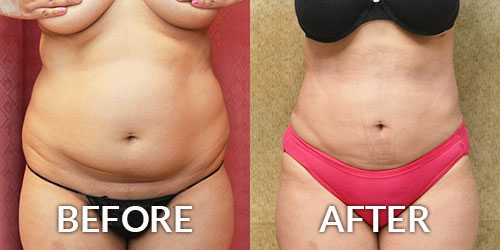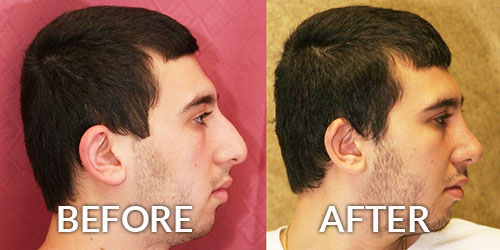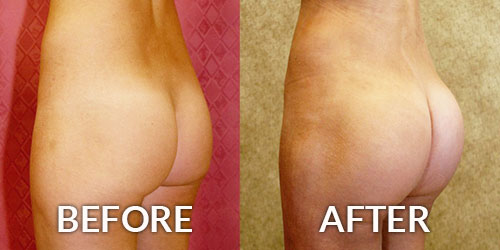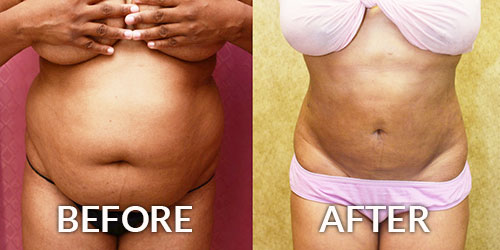Capsular Contracture Treatment
Consultations offered at our two convenient locations in Beverly Hills and Los Angeles, CA

Capsular contracture is one of the most common adverse side effects following breast implant surgery. This condition occurs when the healing capsule of tissue around the implant becomes hardened and distorted, resulting in malpositioned or painful augmented breasts.
The only way to correct capsular contracture is with surgical treatment. With his long career and hundreds of satisfied patients, Dr. Sean Younai has long been one of the most preferred plastic surgeons in the Beverly Hills area. So much so, many women have changed surgeons and sought their knowledge, skills, and expertise in helping correct their capsular contracture. If you are unhappy with your breasts after receiving implants, schedule a private consultation with Dr. Younai to learn more about capsular contracture and what treatment options you have. For those who wish to speak directly to our front desk, please call either our Beverly Hills or our West Hollywood offices at (310) 275-1971.
Contents
About Capsular Contracture
Breast augmentation has long been one of the most popular plastic surgery operations nationally. In 2019, about 290,000 breast augmentations were performed, which makes up around 11% of all plastic surgeries performed in that year.[1] After surgery, the breast tissue slowly heals around the implant, forming a capsule of scar tissue. This capsule formation is a normal part of the healing process after breast augmentation. However, complications arise when the scar tissue experiences an excessive fibrotic reaction to the foreign implant. The tissue begins to harden and can cause severe pain in one or both breasts. With the breast tissue growing unevenly, the implant can change location on the chest and appear higher or to rest unnaturally on the chest. Incidences of capsular contracture occur in 3% to 19% of women who undergo breast augmentation.[2]
While the exact causes of capsular contracture are disputed, experts believe implant choice and surgical technique play a role in the condition’s development. Textured implants, for instance, are thought to be associated with a lower incidence of capsular contracture because the textured surface is thought to disrupt the contracting forces around the implant.[3] In regards to surgical technique, patients who have the implant placed under the muscle rather than directly under the skin experience lower rates of capsular contracture. If you believe you suffer from capsular contracture, be sure to schedule a personal consultation with Dr. Younai to learn more about your treatment options.
Baker Scale
When examining for signs of capsular contracture, Dr. Younai utilizes the Baker Scale to gauge the condition’s degree.
- Grade I: this is the normal, desired appearance and texture of the breast. The tissue is soft and the implant appears natural in shape and size.
- Grade II: the breast is slightly firm, but still appears normal on the chest. Minimal scar tissue has grown around the implant.
- Grade III: the breast is firmer to the touch and may appear misshapen for some patients. For some, this grade does not inhibit their happiness with the state of their breasts.
- Grade IV: the breast is hard to squeeze and painful. The implant(s) has migrated up and out of its original, natural placement and appears abnormal in shape.
Candidates
Women who experience pain, tenderness, or have abnormally firm breasts may be candidates for capsular contracture treatment. For some women, their bodies respond rather quickly to the foreign implant and aggressively grow scar tissue to displace the implant. For others, this process occurs gradually over time. So, there is no comprehensive timetable for when or if you will experience capsular contracture. However, for those who do, Dr. Younai understands it may be a little disheartening to undergo breast augmentation only to have a subsequent revision. This is why Dr. Younai and his Southern California team are here to help you with every last detail regarding your capsular contracture treatment. If you would like to see if you qualify, please schedule a personal consultation at either our Beverly Hills or West Hollywood offices.
Personal Consultation

Dr. Sean Younai has over 25 years and hundreds of satisfied patients in his career. You can read a few of their words here. Dr. Younai specializes in many procedures from breast augmentation to implant revisions and body contouring procedures such as liposuction and body lift. With all the skills and experience necessary, Dr. Younai has continually achieved his patients’ desired appearance – and he is honored to do the same for you.
We will begin your initial consultation with a brief physical examination and a new patient intake interview. Next, we will review your surgical history and listen to how your breast augmentation went. Many women see us after the implant has moved or pain has emerged. We will be curious to note when either of these began. Next, Dr. Younai will carefully examine the affected tissue, noting where most of the scar tissue is prevalent. Then, he will explain how a capsular contracture treatment works and what you can expect from this procedure. He and you will decide if this is the best next step for you. If it is, we will schedule a date and time for your procedure and give you a list of preparatory steps to adhere to in the interim.
Preparation
Preparation for this procedure is similar to preparing for your initial breast augmentation. If you smoke, be sure to discontinue for a few weeks before your procedure. Nicotine constricts blood vessels which hampers the body’s natural healing ability. Also, if you take any blood-thinning medications, speak with your physician about discontinuing them a couple of days before and after your procedure. These medications can cause excessive bleeding. Also, since Dr. Younai will use general anesthesia, be sure to designate a caregiver to drive you home after your procedure. You will be unfit to drive and need to focus solely on rest and recovery.
Correcting Capsular Contracture
Dr. Younai will begin your capsular contracture treatment by meeting with you to review your personalized treatment plan before taking you into the operating room. Here, he will answer any last-minute questions. Then, we will take you to the treatment room and administer the appropriate anesthesia. Dr. Younai will utilize the incision points made in your initial breast augmentation, so no new incisions or scars will have to be made. Then, he will remove the implant and excise all the scar tissue in the breast. Next, he will construct a new pocket for the implant to reside either under the skin or muscle. Once the implant is repositioned, he will make the necessary adjustments to ensure the breast tissue grows evenly around the implant, avoiding any future painful contracture. Once he has sutured the incisions closed, you will be able to go home and focus on proper recovery.
How Much Does Capsular Contracture Treatment Cost In Los Angeles?
The cost of your capsular contracture treatment will depend on personal factors that we will discuss during your consultation. Some patients ask for treatment as well as new or repaired implants. We will determine the price of your personalized procedure and discuss financing options. If you have any questions, please feel free to call our friendly front office at (310) 275-1971.
FAQ
What is capsular contracture?
Capsular contracture is a common condition that occurs after breast augmentation. After this procedure, the breast tissue grows scar tissue that forms a capsule around the implant. This is normal for the healing process. However, complications arise when there is excessive scar tissue in the breast cavity, causing the implant to move out of its normal, natural position on the chest. Common symptoms of capsular contracture include maligned breasts, painful tenderness in breast tissue, and abnormal firmness and shape.
Is capsular contracture normal?
There is a varying degree of statistical data about the prevalence of capsular contracture. Research suggests that it can affect anywhere between three and nineteen percent of women who undergo breast augmentation.
How do I treat capsular contracture?
A woman should look into treatment options for her capsular contracture if she is beginning to experience pain in one or both of her breasts. Also, if the breast appears uneven or higher on her chest, this is a common symptom of too much present scar tissue in the breast cavity. To remedy this condition, surgical intervention is usually the only sustainable option. Other treatment modalities may offer temporary pain relief, but capsular contracture treatment offers long-lasting relief because the errant scar tissue is removed and the implant is relocated. Both of these allow the repositioned implant to rest more naturally on the chest and not succumb to aggressive scar tissue regrowth.
References
- 2019 Plastic Surgery Statistics. (2019). American Society of Plastic Surgeons. https://www.plasticsurgery.org/news/plastic-surgery-statistics?sub=2019+Plastic+Surgery+Statistics
- Hidalgo, David A. M.D.; Weinstein, Andrew L. M.D., M.S. Surgical Treatment for Capsular Contracture: A New Paradigm and Algorithm, Plastic and Reconstructive Surgery: September 2020 – Volume 146 – Issue 3 – p 516-525 doi: 10.1097/PRS.0000000000007079 https://journals.lww.com/plasreconsurg/fulltext/2020/09000/surgical_treatment_for_capsular_contracture__a_new.11.aspx
- Headon, H., Kasem, A., & Mokbel, K. (2015). Capsular Contracture after Breast Augmentation: An Update for Clinical Practice. Archives of plastic surgery, 42(5), 532–543. https://doi.org/10.5999/aps.2015.42.5.532




